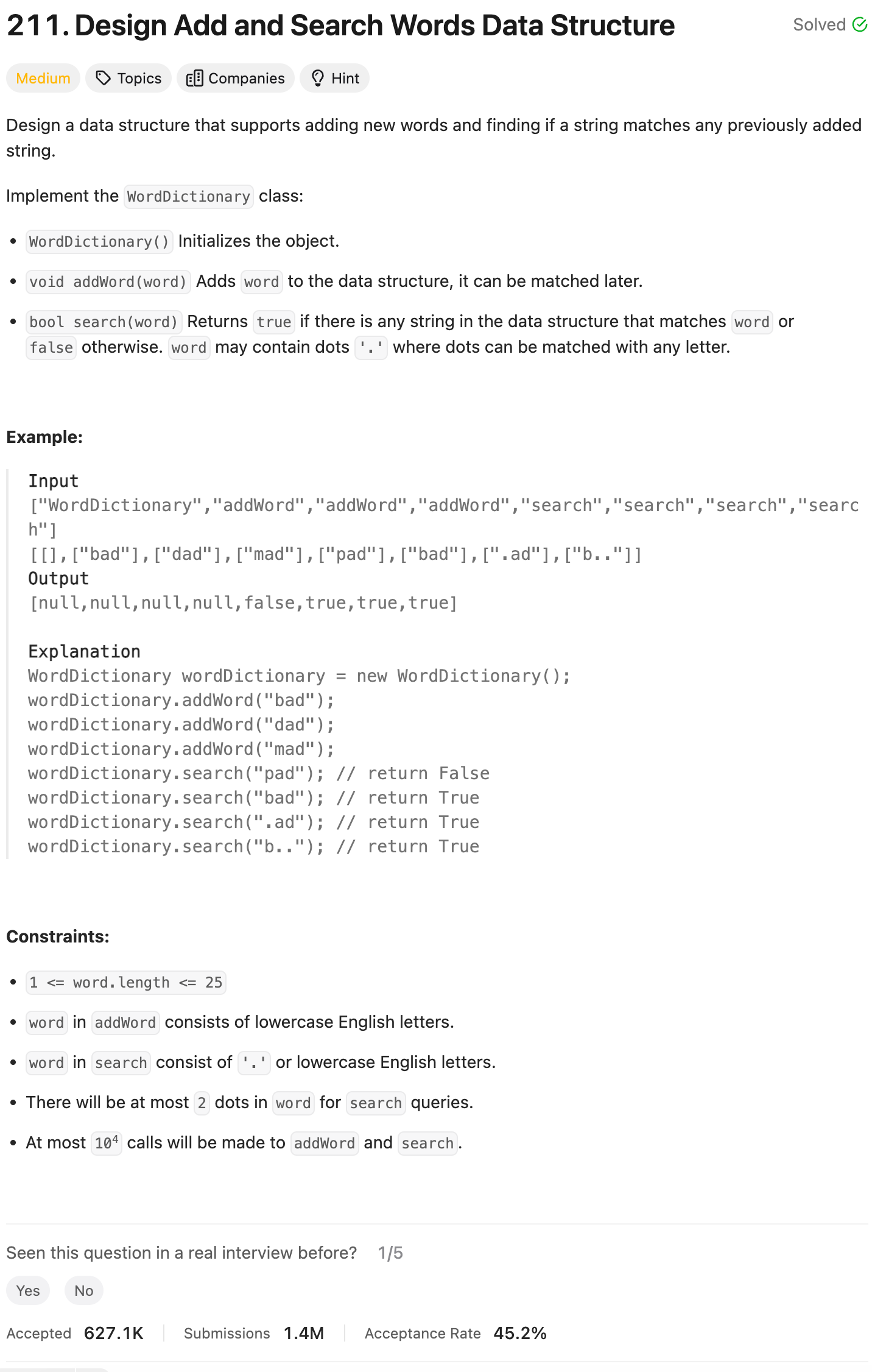Problem of The Day: Design Add and Search Words Data Structure
Problem Statement

Intuition
Upon seeing this problem, I think a trie data structure would be a suitable choice. It’s efficient for storing and searching words with a common prefix. However, the challenge here is dealing with wildcard characters (‘.’). We’ll need to implement a search function that handles these wildcards appropriately.
Approach
I’ll use a trie to store the words. When adding a word, I’ll traverse the trie character by character, creating nodes as needed. For searching, I’ll recursively traverse the trie while handling wildcards by exploring all possible branches at each wildcard encountered.
Complexity
-
Time complexity:
- For adding a word: O(n), where n is the length of the word.
- For searching:
- Worst-case without wildcards: O(m), where m is the length of the word being searched.
- With wildcards: It depends on the number of wildcard characters and the branching factor of the trie. It can be quite high, possibly exponential in the worst case.
- Space complexity: O(n) where n here is the number of characters in all words combinedß
Code
class WordDictionary:
def __init__(self):
self.root = {}
def addWord(self, word: str) -> None:
curr = self.root
for c in word:
if c not in curr:
curr[c] = {}
curr = curr[c]
curr['#'] = True
def search(self, word: str) -> bool:
curr = self.root
for i, c in enumerate(word):
if c == '.':
for node in curr.keys():
if node == '#':
continue
if self.search(word[:i] + node + word[i+1:]):
return True
if c not in curr:
return False
curr = curr[c]
return '#' in curr
# Your WordDictionary object will be instantiated and called as such:
# obj = WordDictionary()
# obj.addWord(word)
# param_2 = obj.search(word)
Editorial Solution
Approach 1: Trie
class WordDictionary:
def __init__(self):
"""
Initialize your data structure here.
"""
self.trie = {}
def addWord(self, word: str) -> None:
"""
Adds a word into the data structure.
"""
node = self.trie
for ch in word:
if not ch in node:
node[ch] = {}
node = node[ch]
node['$'] = True
def search(self, word: str) -> bool:
"""
Returns if the word is in the data structure. A word could contain the dot character '.' to represent any letter.
"""
def search_in_node(word, node) -> bool:
for i, ch in enumerate(word):
if not ch in node:
# if the current character is '.'
# check all possible nodes at this level
if ch == '.':
for x in node:
if x != '$' and search_in_node(word[i + 1:], node[x]):
return True
# If no nodes lead to an answer
# or the current character != '.'
return False
# If the character is found
# go down to the next level in trie
else:
node = node[ch]
return '$' in node
return search_in_node(word, self.trie)